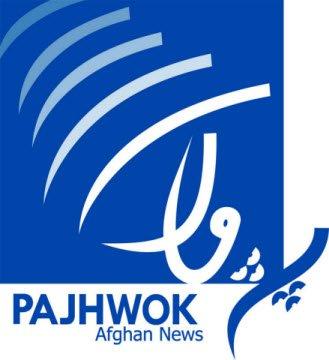KABUL (Pajhwok): Reporters Without Borders (RSF) has compiled a list of 30 coronavirus “information heroes,” including Pajhwok Afghan News whose courage, perseverance or capacity to innovate helped circulate reliable and vital information during the pandemic.
“Some people have taken such big risks to report the reality of the pandemic that they have died as a result, while others have disappeared or have been jailed,” RSF secretary-general Christophe Deloire said.
“Prosecuted, attacked, insulted – many have paid a high price for defending the right to information and for combating the rumors and disinformation that aggravate the consequences of this public health crisis. These new heroes remind us that journalism can save lives. They deserve our attention and admiration.”
The RSF said by naming these heroes, the organization was firstly paying tribute to the journalists, whistleblowers and media who distinguished themselves in the fight for press freedom during an exceptional crisis.
“RSF is also aiming to demonstrate that the information chaos, which has grown during the pandemic, is not inevitable and that those named by RSF can be seen as models at a time when defending reliable reporting and combatting disinformation has become urgent,” said the international organization that safeguards the right to freedom of information.
The RSF said the list it had compiled was not intended to be exhaustive and included both well-known media figures and people the public have not heard of.
Nearly a third of these 30 heroes are from Asia, where the pandemic originated. Six are from Europe and Central Asia, and the others are from Africa, the Americas and the Middle East.
These heroes in common revealed information highlighting the pandemic’s gravity or their government’s mismanagement of the crisis.
Some are veteran reporters like Ana Lalić in Serbia or combative investigators like Blaž Zgaga in Slovenia, Andjouza Abouheir in Comoros and Sergei Satsuk in Belarus.
However, others are ordinary citizens who, in response to the urgency and gravity of the public health crisis, decided to blow the whistle with the aim of saving as many lives a possible.
It was an eye doctor, Li Wenliang, who first alerted the world to the existence of a fast-spreading disease in December 2019. And it was a lawyer, Chen Qiushi, who posted videos on his blog revealing the chaos in the hospitals in Wuhan, the site of the initial Covid-19 outbreak.
Li died of the virus while Chen was forcibly quarantined and never reappeared.
In Venezuela, freelance journalist Darvinson Rojas spent 12 days in prison for a tweet questioning official pandemic figures.
In India, newspaper reporter Vijay Vineet is facing a possible six-month jail sentence for reporting that lockdown restrictions forced hungry kids to eat cattle fodder.
In Bangladesh, the well-known cartoonist Ahmed Kabir Kishore is facing a possible life sentence for posting cartoons on Facebook about politics during the Covid-19 crisis that alluded, inter alia, to corruption.
Others have avoided prison but can no longer work. After a lengthy and violent police interrogation over an article questioning the Kingdom of Eswatini’s handling of the Covid-19 crisis, Swati Newsweek website editor Eugene Dube had to flee to neighbouring South Africa.
Chris Buckley, a Beijing-based reporter for the New York Times, was forced to leave China after spending 76 days in Wuhan at the height of the outbreak. For the first time in 24 years, his visa was not renewed.
Many of these heroes displayed courage in resisting pressure and censorship. They include Caixin, an independent English and Chinese-language media outlet in Beijing whose reporting has questioned the Chinese government’s narrative.
For some, such as Afghan reporter Anisseh Shahid, it took courage to simply keep reporting in the field with the threat of infection compounding the threat of a Taliban attack.
Regarding Pajhwok Afghan News, the RSF said the largest news agency in Afghanistan continued its fact-finding mission despite the spread of the coronavirus pandemic.
The organization said Pajhwok Afghan News confined itself for almost a month in a row on its premises.
The founder and director of the agency, Danish Karokhel, stayed with 15 other collaborators at the headquarters to ensure the continuity of activities and managed, despite the economic difficulties linked to the pandemic, to protect journalists who have to go to the ground.
In the United States, several White House correspondents have distinguished themselves by their perseverance in adversity. Despite constant attacks by President Trump and his aides, they continue week after week to question his handling of the pandemic.
Finally, RSF pays a special tribute to journalists in Guayaquil, Ecuador’s business capital and the site of Latin America’s biggest Covid-19 outbreak.
pr/ma








GET IN TOUCH
NEWSLETTER
SUGGEST A STORY
PAJHWOK MOBILE APP